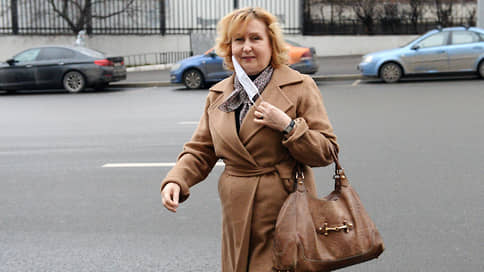Former HSE professors got through to the Constitutional Court on the third attempt
[ad_1]

The Constitutional Court accepted for consideration the complaint of the former professor of the Faculty of Law of the Higher School of Economics (HSE) Irina Alebastrova, who asks to verify the compliance with the Basic Law of the norms of the Labor Code governing relations between an educational organization and teachers. In particular, she complains, the general rule does not apply to professorships, which implies that if the employment contract is not renewed on time, then the contract becomes indefinite. This leads to the derogation of not only the labor rights of the teacher, but also the freedom of scientific creativity, the applicant insists. Earlier, the court refused to consider two similar complaints from former colleagues of Ms. Alabastrova.
The Constitutional Court (CC) on the complaint of Irina Alabastrova will check the provisions of several articles of the Labor Code (LC) at once, according to the website of the court. This is not the first attempt by former HSE teachers to challenge the existing procedure for hiring teachers: as Kommersant previously reported, two previous complaints (in the spring of 2023, former HSE professors Elena Lukyanova and Ilya Guryanov applied to the Constitutional Court with similar statements) the court refused to consider , referring to the earlier decision, in which he had already answered the questions posed. Ms. Alabastrova, who passed all the necessary judicial instances with a slight backlog, was more fortunate.
All these complaints are related to the mass dismissal of teachers from the HSE in 2019-2020. Irina Alebastrova, like a number of her colleagues, successfully passed the competition for the position of the teaching staff and continued to work, although a new employment contract or additional agreements to the old one were not concluded with her. As a general rule, in such cases, a fixed-term employment contract becomes indefinite, but instead, several HSE faculty suddenly received a notice of transfer to another position and the impending termination of employment. In courts, the administration of the university appealed, in particular, to Art. 332 of the Labor Code, which gives the right to conclude a fixed-term employment contract with teachers who have passed the competition.
The legislation is interpreted in such a way that the administration of the university receives the right to unilaterally determine the term of the employment contract by its order, the complaint notes. This violates the constitutional right to work and protection from unemployment, Ms. Alebastrova insists. And besides, it destroys the contractual nature of labor relations, paralyzes the effect of guarantees against abuse by the employer and leads to a violation of the balance of interests of the employee and the employer.
The complaint emphasizes that teachers are in dire need of guarantees of labor rights, since fixed-term employment contracts are not an exception for them, but a common practice: in fact, they are constantly under the threat of legal and non-appealable dismissal. At the same time, not only the labor rights of the teacher suffer, the applicant emphasizes, but also the freedom of scientific creativity and teaching are also under threat. In this regard, she asks the Constitutional Court to recognize the controversial articles as contrary to the Constitution in the sense that law enforcement practice gives them, and to turn to the legislator with a proposal to amend the current legal regulation of labor relations with teachers.
The new approach of the Constitutional Court, which accepted for consideration a complaint similar to the two previously rejected, may be related to the individual circumstances of the applicant, indicating a violation of his rights, explains Olga Kryazhkova, associate professor at the Russian State University of Justice. But in general, she notes, in the practice of the Constitutional Court there are cases when a series of similar refusals to accept complaints for consideration is interrupted and the court decides to consider the issue on the merits. A striking example is the 2019 case on the right of the descendants of the repressed to return to their former places of residence. Therefore, the expectations that the Constitutional Court will recognize the controversial legal norms of the Labor Code as unconstitutional, or at least give them a clear constitutional and legal interpretation, are by no means groundless, the expert believes.
Indeed, Vladislav Vatamaniuk, managing partner of the Vatamanyuk & Partners group, confirms that it happens that the Constitutional Court initially does not find grounds for accepting a complaint for consideration, and after some time, again faced with a similar issue, makes the opposite decision. This may be due to various circumstances – for example, a change in law enforcement practice or, as the court itself previously explained, the dynamics of social relations. In any case, the lawyer concludes, by accepting the complaint for consideration, the Constitutional Court finds a basis different from that contained in the previously issued refusals.
[ad_2]
Source link








